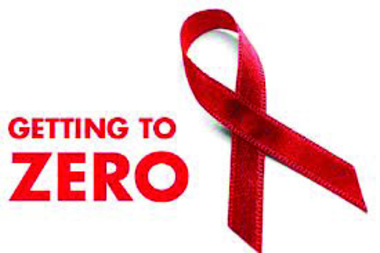What are you afraid of?

by Mary Turner
Gayly Columnist
Please tell me: What exactly are you afraid of? What is it that haunts you at night when you’re trying to sleep? What follows you around each day, lurking in the dark recesses of your mind? Do you cringe on the inside when friends discuss their HIV status, worried that they will inquire about yours? If you don’t know your status, you should. Ignorance is far from bliss, and you should get treatment as soon as possible after infection to help slow down the damage from the virus. If you know you’re HIV+, why aren’t you seeking treatment?
According to at myhivhangup.com, 32% of people who test positive don’t get treatment because they are afraid of the side effects. The drugs used to treat HIV are indeed potent ones, and the side effects can be bad. But how bad will things be without treatment? How you respond to different drugs depends on a number of things, so you certainly want to talk to a healthcare provider as soon as possible. Remember that you are a partner in your treatment plan. It is important for you to ask questions, tell the doctor if you experience extreme or unusual effects, and so forth.
Twelve percent of people don’t seek treatment because they are embarrassed. Likewise, nine percent are hesitant because they feel ashamed. We live in a culture that primarily views sex as “taboo,” especially if it’s with a same-sex partner. The myth is that only “bad” or “dirty” people have sex, and so STD’s and HIV are your punishment. That myth is totally bogus, but it’s still hard to ask for help if you think you’re going to be judged. Know that there are doctors out there who won’t judge you. And you shouldn’t judge yourself. We can play the “What if I hadn’t” game all day, but it won’t change the reality of now. So don’t waste your time beating yourself up emotionally.
Another 12% of HIV+ people reported that they are confused about treatment options. Being confused is understandable. Taking steps to become informed and working with someone to get your questions answered is not. HIV won’t just go away and the answers to your questions won’t appear to you in a vision in the night.
If you’re thinking that you haven’t reached out for all of the above reasons, you’re a part of the 26% of respondents who feel anxious and locked down on a lot of levels. I strongly encourage you to visit www.myhivhangup.com and let them give you answers to your questions. The website is supported by a collaboration of health care companies who can also assist you in being able to get your medications once you are ready to begin treatment.
The fact that nobody lives forever doesn’t mean that you should let your life be cut short or that you should suffer needlessly just because you’re scared. Visit the website and begin taking steps to reclaim your life.
The Gayly – November 24, 2013





